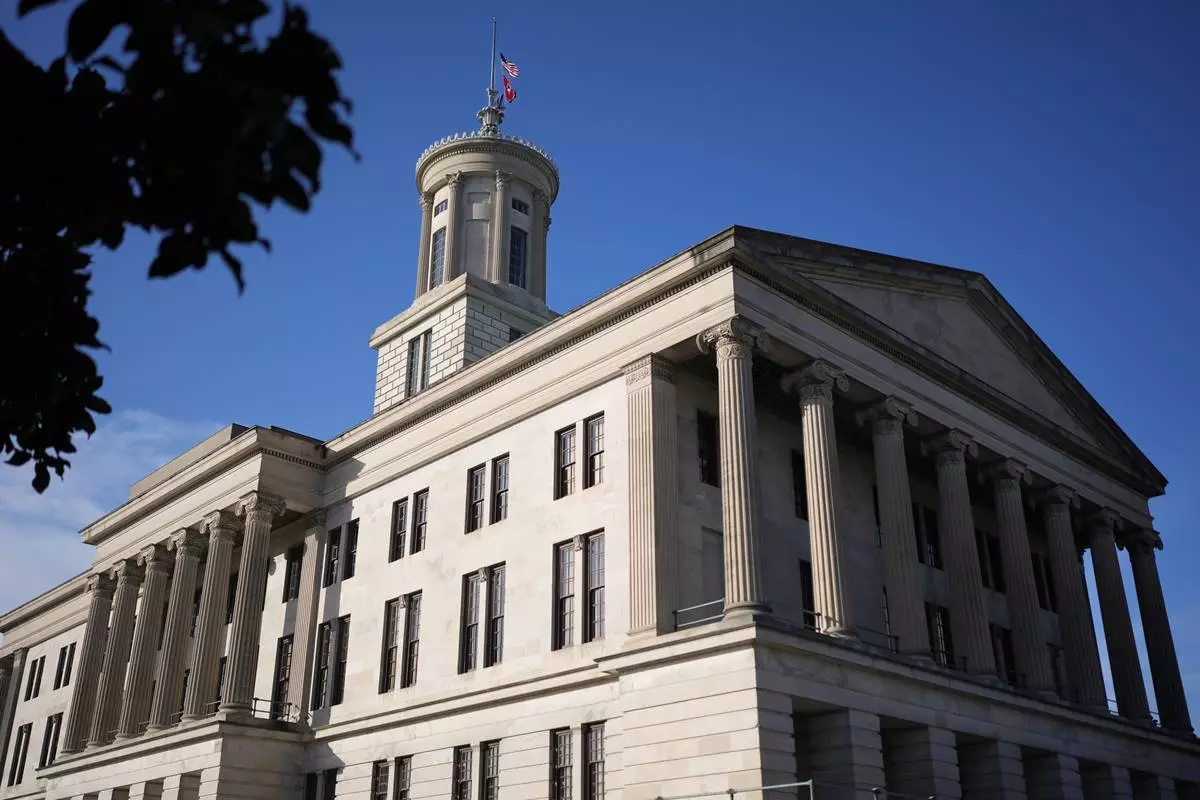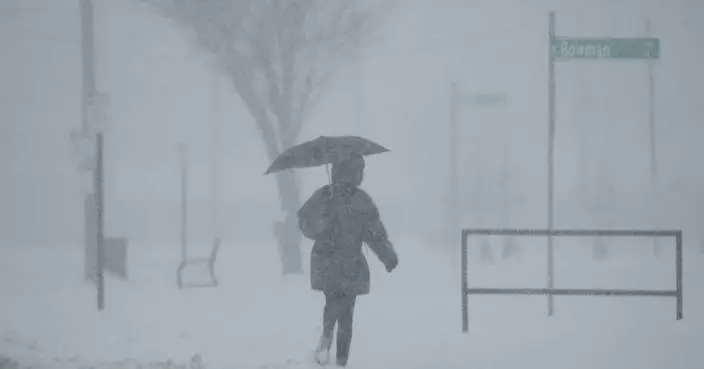A group helping to lay the groundwork for a future Donald Trump administration said its computer systems were breached, marking the second known instance that people supporting the former president have been the target of a cyberattack.
The America First Policy Institute discovered the breach last week. It would not say what materials were compromised.
“As the leading policy group in the America First movement, it is not surprising that hostile foreign actors would attempt to infiltrate our IT,” Marc Lotter, the organization's chief communications officer, said in a statement. “The tactics, techniques, and procedures of the threat actor are similar to that of nation-state sponsored activities we have seen, allowing us to remediate and respond quickly.”
AFPI is one of several groups formed after Trump left office to help lay the groundwork for the next Republican administration. It has been publishing policy guides and penning executive orders and draft legislation for Trump to potentially implement if he wins.
It is led by Brooke Rollins, who previously led Trump’s Domestic Policy Council and is widely expected to be a contender for a top job if Trump wins again.
The group also includes Linda McMahon, who led Trump’s Small Business Administration and now co-chairs Trump’s transition team.
The reported breach comes after authorities said Iranian hackers targeted Trump's campaign and email accounts of some supporters and stole some material. Three Iranian operatives have been charged with the cyber attack.
The FBI declined to comment Saturday on the latest reported breach.
The breach was first reported by Politico.
Associated Press writer Nicholas Riccardi in Denver contributed to this report.

FILE - Brooke Rollins, former director of the White House Domestic Policy Council, speaks as former House Speaker Newt Gingrich listens at an America First Policy Institute agenda summit in Washington, July 26, 2022. (AP Photo/Andrew Harnik, File)
NASHVILLE, Tenn. (AP) — A Tennessee law requiring pornographic websites to verify their visitors' age was largely blocked in court before it was to take effect Jan. 1, even as similar laws kicked in for Florida and South Carolina and remained in effect for more than a dozen other states.
On Dec. 30, U.S. District Judge Sheryl Lipman in Memphis ruled that Tennessee's law would likely suppress the First Amendment free speech rights of adults without actually preventing children from accessing the harmful material in question. The state attorney general's office is appealing the decision.
The Free Speech Coalition, an adult entertainment trade group, is suing over Tennessee's law and those in a half-dozen other states. The coalition lists some 19 states that have passed similar laws. One prominent adult website has cut off access in several states due to their laws.
The issue will hit the U.S. Supreme Court for oral arguments regarding Texas' law next week.
No one voted against Tennessee's law last year when it passed the Republican-supermajority legislature, and GOP Gov. Bill Lee signed off on it.
The law would require porn websites to verify visitors are at least 18 years old, threatening felony penalties and civil liability possible for violators running the sites. They could match a photo to someone's ID, or use certain “public or private transactional data” to prove someone’s age. Website leaders could not retain personally identifying information and would have to keep anonymized data.
The Free Speech Coalition and other plaintiffs sued, winning a preliminary injunction that blocks the attorney general from enforcement while court proceedings continue. However, the coalition expressed concern that private lawsuits or actions by individual district attorneys could be possible.
In her ruling, Judge Lipman wrote that parental controls on minors' devices are more effective and less restrictive.
She wrote that under Tennessee's law, minors still could access adult sites using VPNs, or virtual private networks, that mask a user's location. Or, they could view pornographic material on social media sites, which are unlikely to reach the law's threshold of one-third of its content considered harmful to minors.
The judge also said the impact could be overly broad, potentially affecting other plaintiffs such as an online educational platform focused on sexual wellness.
She noted that Tennessee's definition of “content harmful to minors” extends to include text. She specifically mentioned that the phrase “the human nipple,” or crude combinations of keyboard characters, would be considered harmful as long as they lack “serious literary, artistic, political, or scientific value for minors."
Tennessee Attorney General Jonathan Skrmetti's office is asking the 6th U.S. Circuit Court of Appeals to let the law take effect as the lawsuit proceeds. Skrmetti noted that other appeals courts, including the U.S. Supreme Court, allowed similar laws to take effect.
“The Protect Tennessee Minors Act institutes common sense age verification to stop kids from accessing explicit obscene content while protecting the privacy of adults who choose to do so," Skrmetti said.
The Free Speech Coalition has argued the law would be ineffective, unconstitutional and force people to transfer sensitive information.
“This is a deeply flawed law that put website operators at risk of criminal prosecution for something as trivial as a mention of the human nipple," said Free Speech Coalition Executive Director Alison Boden.
As verification laws took effect in Florida and South Carolina last week, website Pornhub cut off access there and posted a message encouraging people to contact political decision-makers. Its parent company, Aylo, says the site has blocked access in 16 states with verification requirements it called "ineffective, haphazard, and dangerous" and not properly enforced. The company is advocating for age verification on individual devices.
Judges had paused the laws in Indiana and Texas. But circuit appeals courts stepped in to allow enforcement.
The Supreme Court declined to halt Texas' law in April while the court action continues. The next step is Supreme Court oral arguments on Jan. 15.
Another age verification law is set to begin in July in Georgia.
———
This story has been corrected to show that Attorney General Jonathan Skrmetti made a statement about the Protect Tennessee Minors Act, not his spokesperson.

FILE - The Tennessee Capitol is seen on April 23, 2024, in Nashville, Tenn. (AP Photo/George Walker IV, File)











